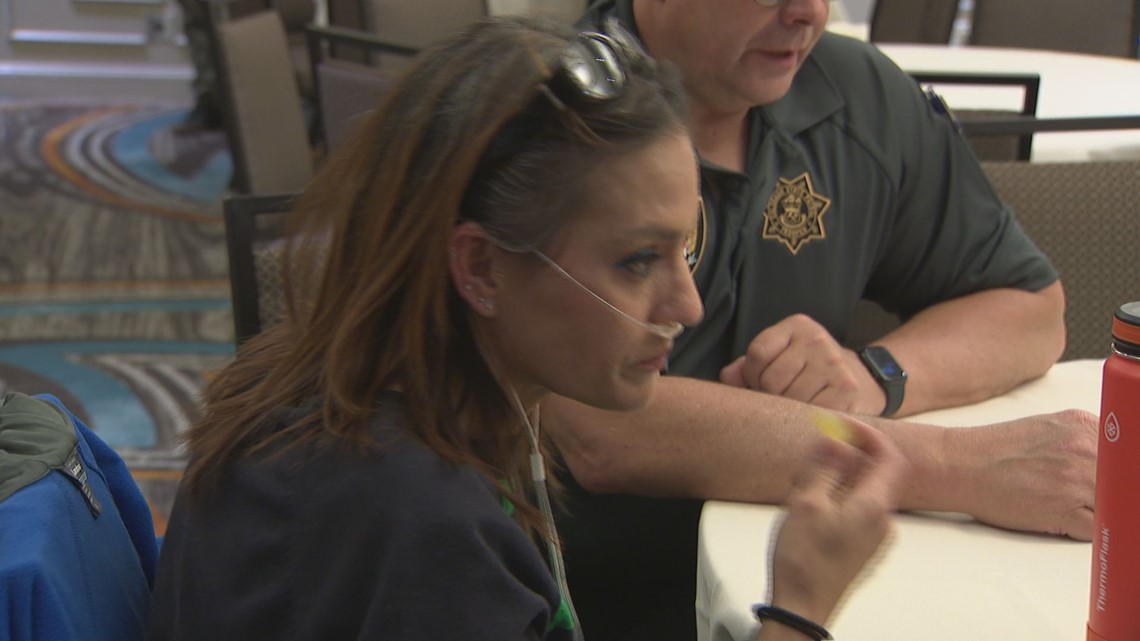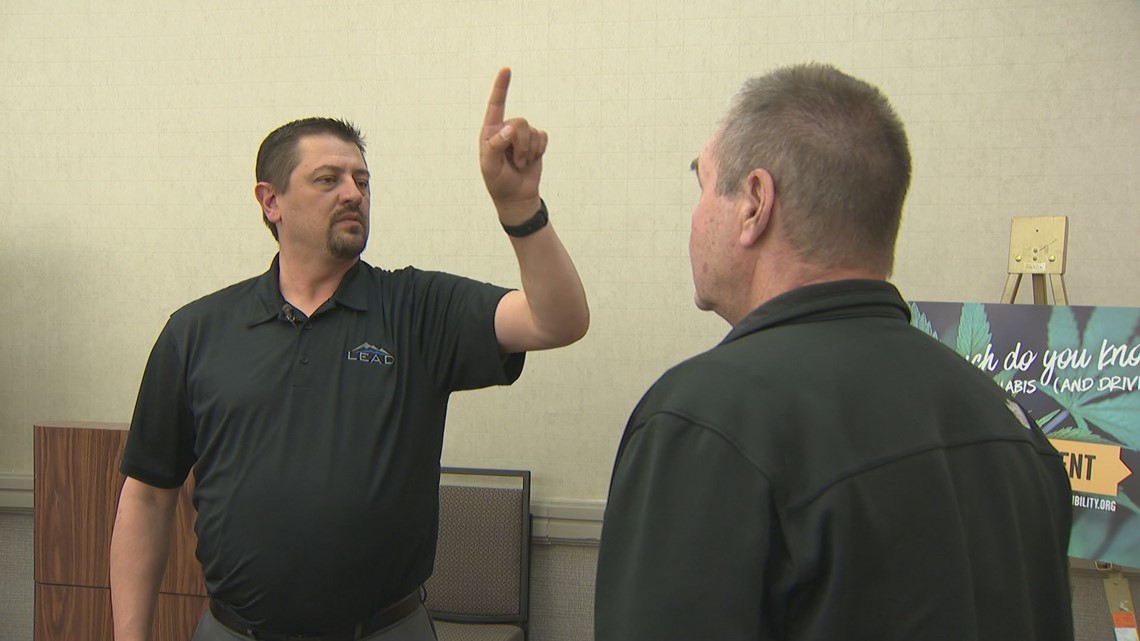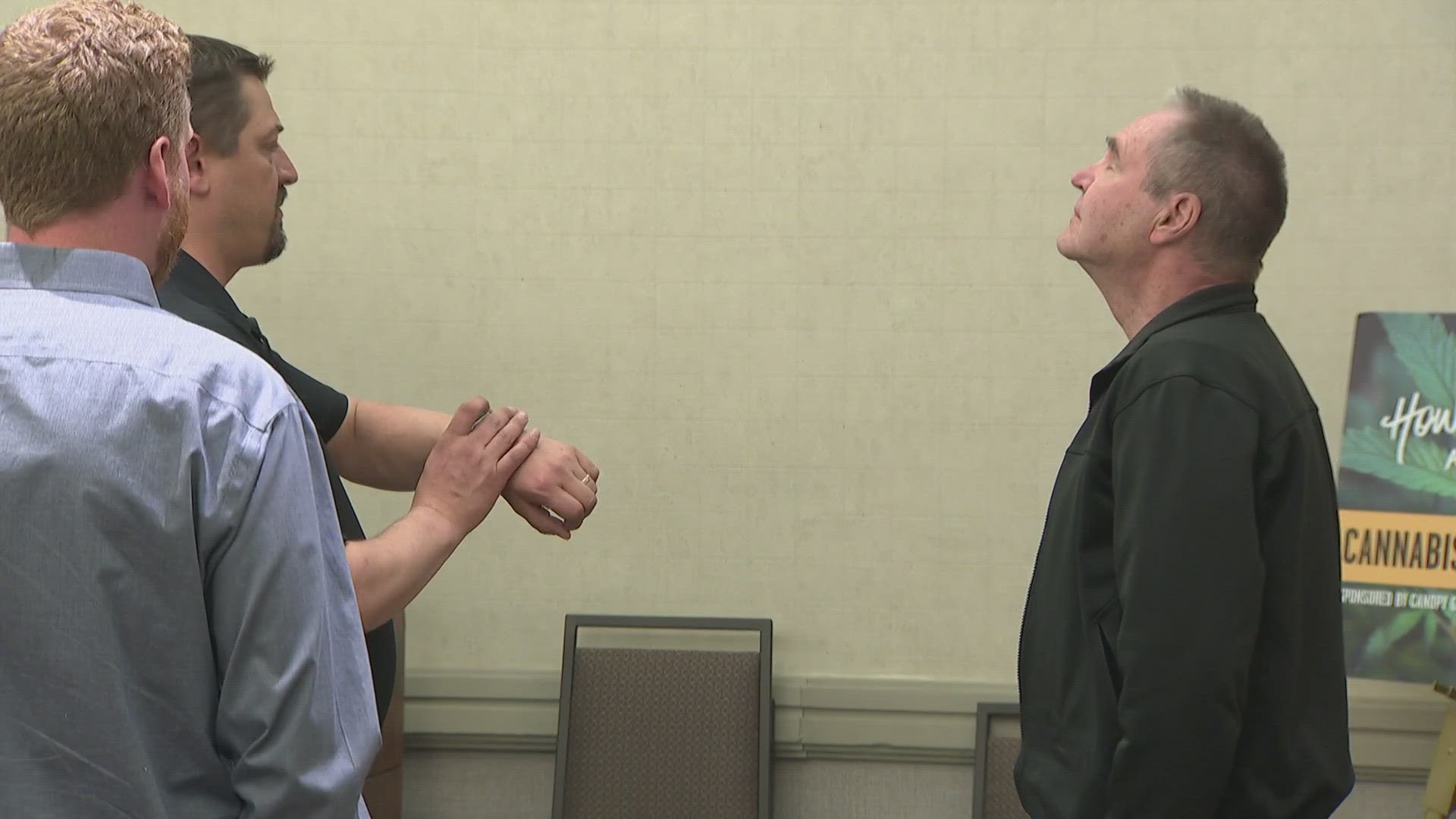CENTENNIAL, Colo. — Thousands of people are expected to gather at Civic Center Park for the Mile High 420 Festival Thursday.
The Colorado Department of Transportation saw it as an opportunity to teach employees of the cannabis industry the signs of impairment and to know when someone may be too high to drive.
On Wednesday, the agency hosted an event where a group of volunteers gathered to consume "fast-acting" edibles.
After, law enforcement officers from departments across Colorado performed on the volunteers the methods they use to determine if impairment is a factor after pulling a driver over.
"The workshop is intended to educate industry members on the signs and physiological impacts of cannabis impairment, as well as how law enforcement detects impairment," CDOT said in a news release.


“When a state legalizes cannabis, the culture change(s) and that will trickle down to the driving culture," CDOT Highway Safety Manager Glenn Davis said. “What you have to do is you have a different type of public that uses cannabis and it's distributed different, so what our office does is work with those organizations so they can give the message. We also try to inform the consumer.”
According to CDOT, as of 2022, more than one-third of all fatalities on Colorado roads involve an impaired driver.
They also said deaths involving a driver who tested above the legal limit for active THC increased 58% between 2020 and 2021.
And since 2019, deaths on Colorado roads involving a driver impaired by alcohol, drugs or a combination of the two have increased by almost 60%, the state agency reported.


"Look at the calendar, there are certain high points – 4th of July, Memorial Day, but 4/20 is definitely part of that and we know that we will most likely have increased testing the next few weeks to months because of 4/20," said Stephanie Olofson, a toxicologist for the Colorado Bureau of Investigation.
She said their role is testing the blood of people who have been arrested for driving under the influence.
“We do see some higher levels of THC, but it’s important to note the level itself, the number itself, doesn’t equal impairment. It’s part of the case – also involved is driving behavior," she said. “Getting to be able to see people who have consumed and the effects on that individual are important not just for the industry, law enforcement, but for toxicologists as well.”
SUGGESTED VIDEOS: Latest from 9NEWS

